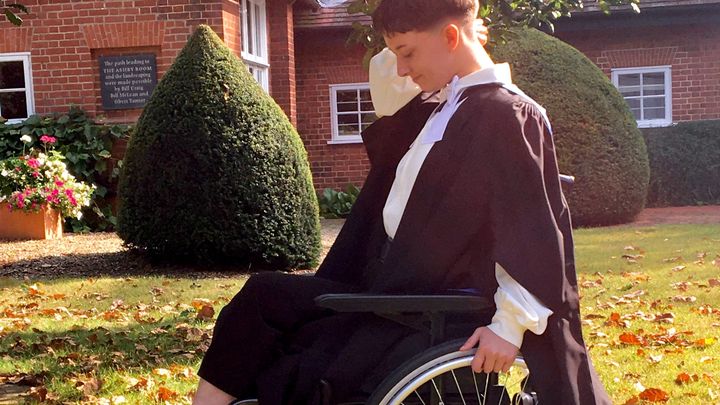
Help Indigo get a wheelchair
Donation protected
Hello everyone!
After 24 years of struggling on two feet, I have finally concluded that my body is much better suited to existence on four wheels. Please can you help make this a reality for me?
I am crowdfunding for an active user manual wheelchair that will be custom fitted for my body, allowing me to move and dance in a way that hasn’t been possible in a very long time. Chairs like this cost a lot of money, cannot be funded on the NHS, and are designed to be extremely lightweight and manoeuvrable so they can be used independently.
As a disabled person, I have experienced structural and systematic barriers throughout my life that I have worked to combat and critique through my art, activism and academic research. I want us collectively to build a world where all people have access to all the things we need to flourish in our lives, whether this is housing, education or employment. For myself, I need access to a wheelchair that can give me independence and the ability to flourish. And I am really hoping my community might be willing to help me achieve this.
I know all our financial situations are different, so please only contribute if and what you can. Even if you can just share this with others who might be able to help, that would mean so much.
A bit of background…
As many of you might know, I have been thinking about this chair now for many years but have been putting it off because I have been scared of asking for help, scared of not feeling “disabled enough”, scared of what it might mean to be perceived in the world as a wheelchair user, and the different barriers this will create.
I did my undergrad degree at SOAS before moving to Cambridge to study for a masters in medical anthropology, conducting award-winning research into the lives and experiences of disabled people. I am an artist, writing and illustrating zines on disabled care networks and running disabled-led life drawing workshops that explore social discomfort around disabled bodies. I am now starting my professional career at Scope, the disability equality charity, continuing my commitment to creating an accessible world.
I live with a whole host of health conditions that result in chronic and often debilitating pain and fatigue. All the joints in my body are hypermobile and can easily dislocate, causing severe pain, injury and falls. My heart is also not very good at pumping blood to my head, especially if I am standing still. This means the longer I try and stand, the fainter I get, leading to muscle weakness and passing out. For a period during my undergraduate degree, I became largely housebound, too exhausted from overexerting myself that I had to take a leave of absence and then redo the academic year. Since then, I have primarily worked from home, relying on taxis to get me into uni when I need it and missing out on many social activities I would have liked to participate in. But I have also spent this time learning how to sustainably pace my body, build strength and manage my fluctuating health conditions for the long term.
Over the first lockdown in 2020, I applied to the NHS wheelchair service for a chair. I was awarded a basic very-very heavy manual chair that I can not use unaided. Since last Christmas, I have been living in a supportive, accessible home with my partner and friends and have benefited from using this chair for food shops and day trips —although never independently. Getting a new lightweight chair will give me the freedom I need. It will allow me to leave the house on my own, not have to worry about where I can rest, whether I will fall, or whether I can get home afterwards. It will mean I can go out with my friends, go dancing, travel to work and have the opportunity to be physically out in the world again.
The vital equipment that disabled people need in order to have equal access to the world shouldn't cost as much as it does. But whilst this is the case, I don't believe it should be solely the responsibility of the individual to fund these extra costs. I would greatly appreciate any support you can give to helping me achieve this goal.

Image of the Ki Mobility Tsunami ALX wheelchair.
A breakdown of costs
The total cost of the chair: £3,102
- Wheelchair frame: £1,700
- Fold-down push handles: £130
- Durable tyres: £90
- Anti-tip wheels (for stability): £75
- Specialist supportive handrims to minimise dislocations: £225
- Specialist posture supporting backrest to minimise back pain: £510
- Lightweight seat cushion: £247
- Very pretty iridescent burgundy colouring: £90
Organizer
Indigo Ayling
Organizer
England